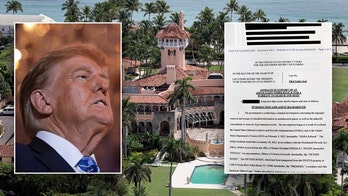As Todd Young travels Indiana's Ninth Congressional District in an effort to replace Democrat Barron Hill in the U.S. House of Representatives, he knows he has voter discontent in his corner - and says that's a good thing.
"I think people this year are inclined to vote straight republican," Young says.
Indiana is one of 16 states that allow straight party voting. So, when a Young supporter decides to throw his or her weight behind the whole party on his behalf, the vote trickles all the way down to the Indiana State House.
Republicans hold a two-to-one majority in the Indiana State Senate, while Democrats hold sway in the House of Representatives - but by only four votes. That's why the Hoosier State is one that national Republicans are targeting with the hope that they can take the majority in both State houses.
Tom Bevan of Real Clear Politics says the jeopardy of Democratic control in the State houses is the underreported phenomenon of this election. "The Republican wave that everyone sees coming, certainly at the House level and the Senate level, is also happening at the grassroots level in the State Houses and some of these local races."
In 27 states Democrats control both houses, compared to Republicans who dominate 14. Eight States have split majorities, and Nebraska is unicameral.
This election, however, Republicans see vulnerability in at least nine states. Democrats hold sway in some of them by a small margin, like Ohio with a six-vote split. There is a massive split in Illinois -- 70 to 48 in favor of the Democrats. But the land of Lincoln is $13 billion in debt, and people there just endured the Blagojevich scandal. Voter discontent is so strong Republicans believe there will be enough turnovers to close the gap.
The outcome of this election could impact elections for the next decade, because this election follows the census. Republicans are very eager to take the majority and control the redistricting. "What we saw in 2001 is that Democrats controlled the last redistricting and we have lousy congressional lines," says Indiana Republican Chairman Murray Clark.
Of course Democrats want to prevent that. The national party, like Republicans, has dumped millions of dollars into local campaigns. They hope they can hold off the Republican revolution, in part, because they drew the boundaries for this election.
"These are maps that were drawn under Democrats. We feel pretty confident that the races where they've concentrated most of their money is (sic) in districts that we've held for a long time. We feel confident that we're going to hold them," says Indiana Democratic Chairman Dan Parker.




